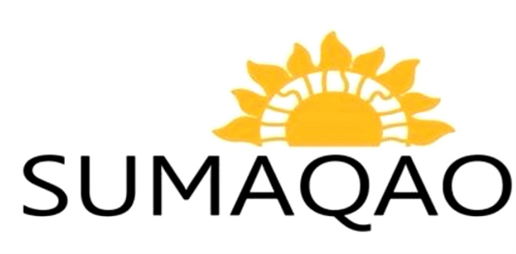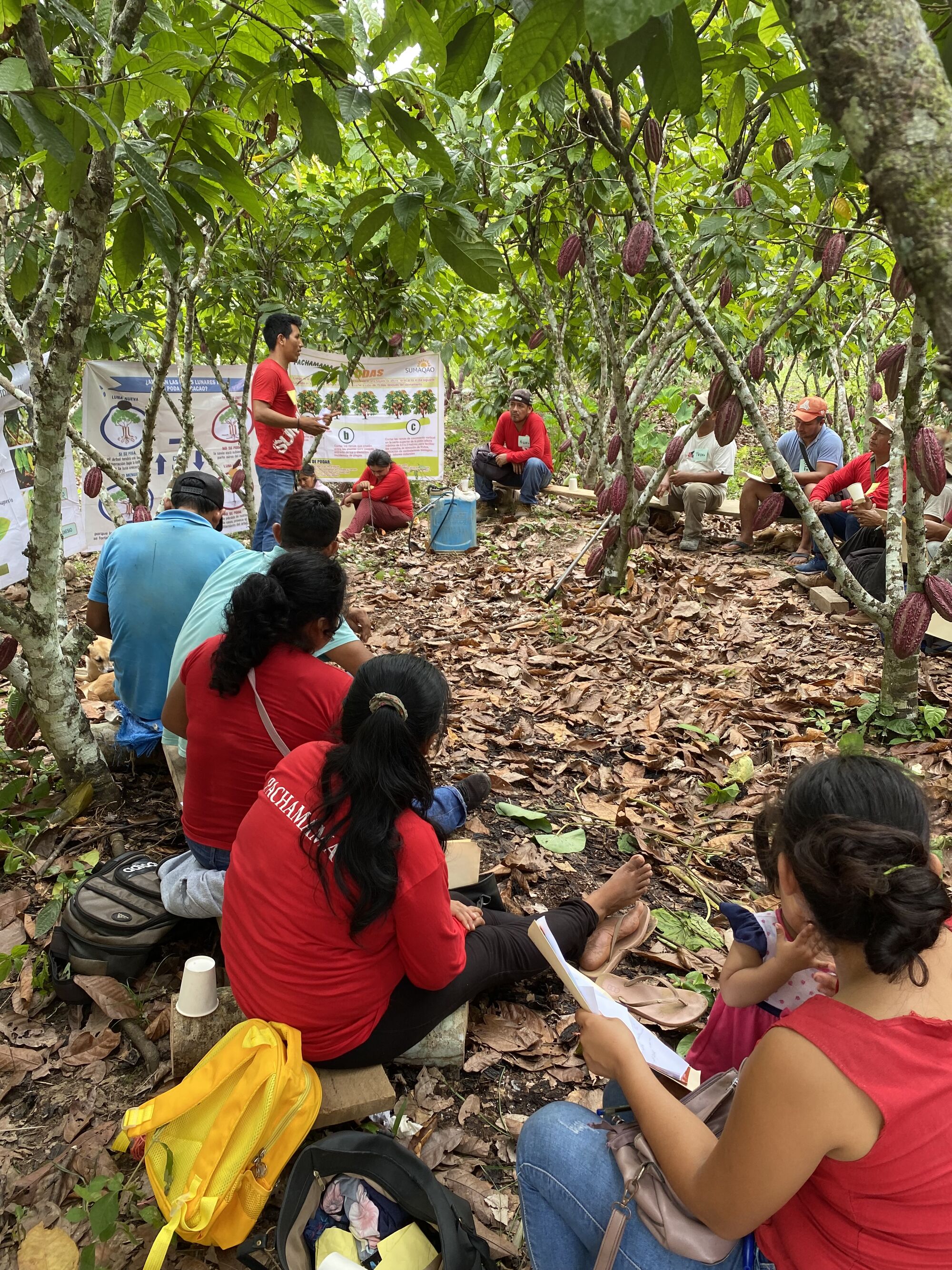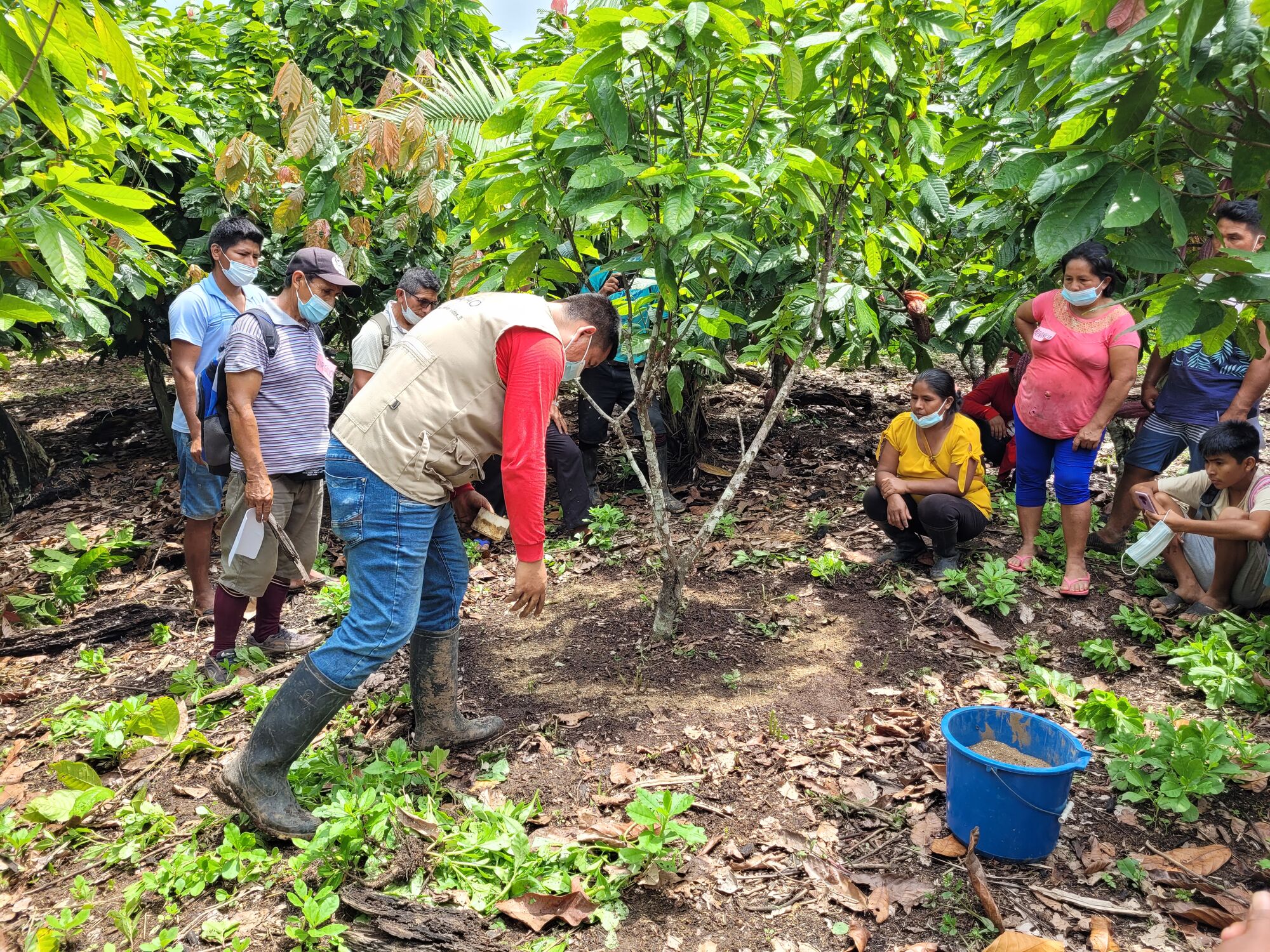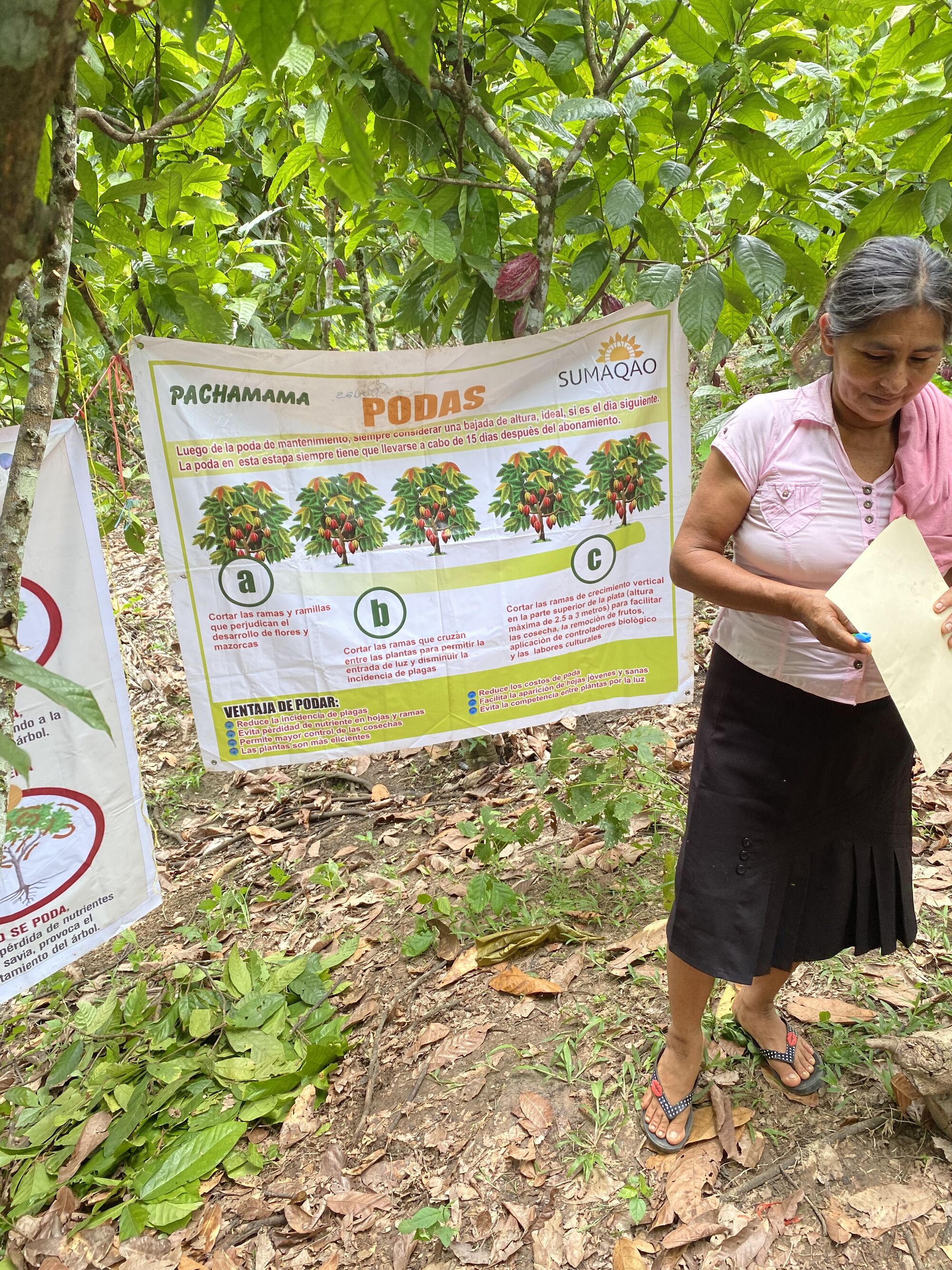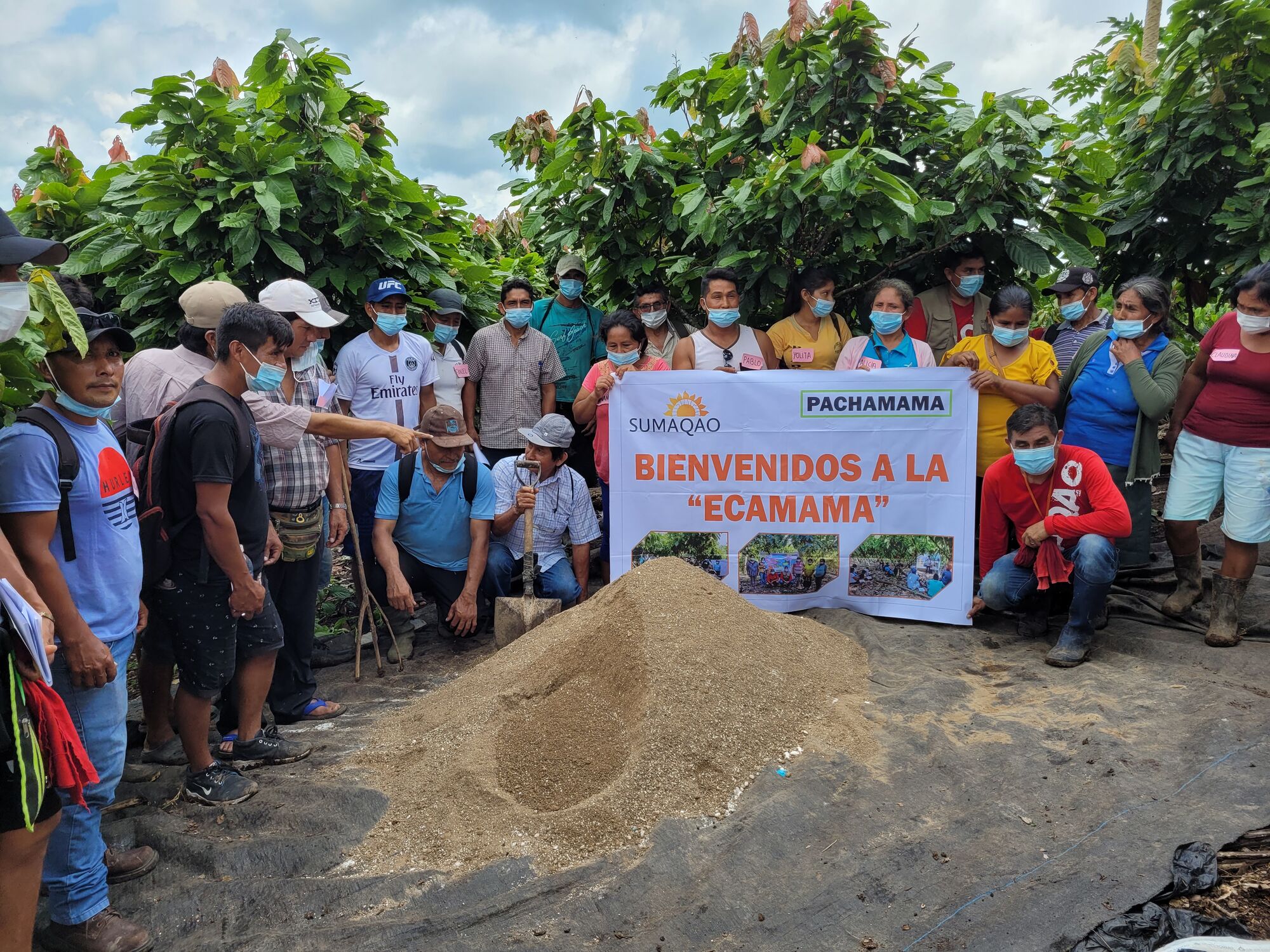Cacao Amazónico Sostenible: Diversifying Incomes, Sustaining Forests
What is the main objective of the project?
The project implemented by Swisscontact aims to strengthen the sustainability of the cocoa supply chain of Sumaqao (part of MINKA, a Swiss trader). This is done through pilot interventions aimed at validating and disseminating good production, economic, and environmental practices among a framework of 600 producer families.
The project will enable key sustainability challenges to be addressed, such as the economic instability of small producers and the environmental impact of unsustainable agricultural activities, promoting inclusive economies.
How will the project contribute to sustainable cocoa production?
Synergies will be generated with the Sustainable Amazonian Landscapes project implemented by Swisscontact and sector stakeholders to validate good practices and production models that improve the quality of life of producers and strengthen the sustainability of the cocoa chain, in line with the SDGs and the Cocoa Platform’s 2030 Roadmap. To this end, the approach includes several components: validating complementary, market-oriented alternatives for income generation such as family-based guinea pig breeding and beekeeping systems; and introducing modern irrigation technologies on cocoa farms to optimise water use, enhance productivity, and foster agricultural practices that are more resilient to climate change.
What is innovative about this project?
The project incorporates innovation as a central axis for testing and refining strategies that contribute to diversifying sources of income and improving the sustainability of farming families, strengthening the stability of their production systems.
It will also facilitate the creation of networks for knowledge exchange and the development of viable business models. Training activities supported by digital media will be promoted.
How do you plan to ensure the scalability of the sustainable innovations implemented in the cocoa value chain?
The project team will document and systematise the experiences and results obtained, creating guides that can be used by other producers to replicate the model in other producer organisations and regions.
Internships and exchange visits will be organised for producers with the support or advice of project technicians. These activities will enable producers to learn from best practices and adapt them to their own farms.
To promote the exchange of experiences and replicability, a continuous learning and knowledge-sharing environment will be fostered by establishing knowledge networks that connect producers and project and Sumaqao technicians to share sustainable best practices and lessons learned.
Organisations involved

